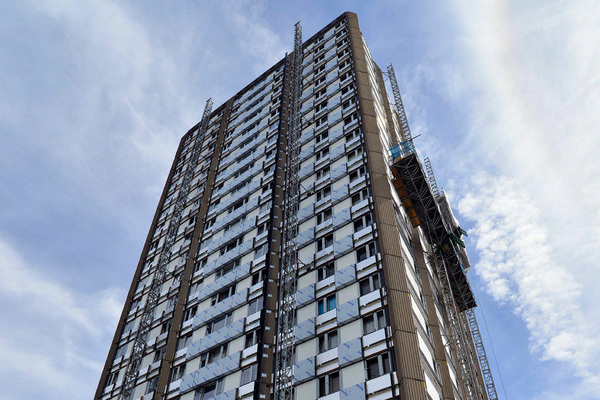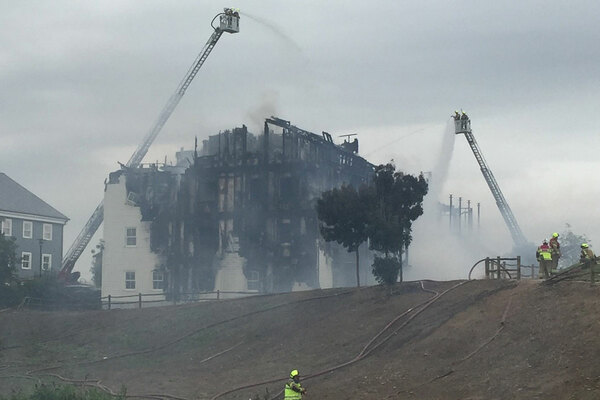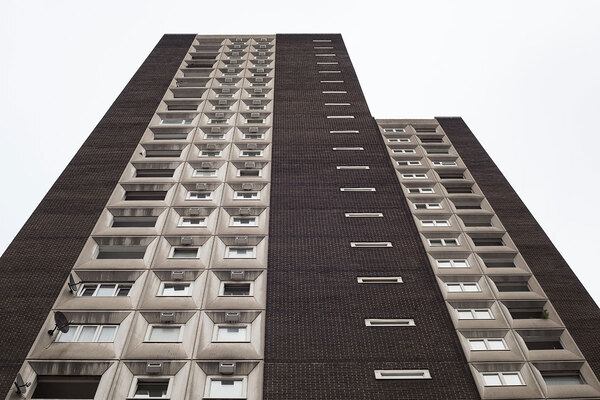You are viewing 1 of your 1 free articles

The Grenfell Tower Inquiry has demonstrated the challenges the new building materials regulator will face
The government has announced that a national construction products regulator is to be set up in the wake of the Grenfell Tower Inquiry. Mark London explores what is needed from the new regulator
The Grenfell Inquiry has brought into sharp focus the somewhat disparate and subjective methods material manufacturers have used to test and promote their products to the market.
Tests undertaken by manufacturers – and the manipulation of them in some cases – have been relied upon by various quasi-official bodies without any apparent level of scrutiny or forensic examination of the product or the testing methodology itself.
This has led to a situation where products have been brought to the market and openly touted as being tested and suitable for a particular purpose when that is manifestly incorrect.
The adoption of these products has been aided in many cases by ambiguous, missing or, in some instances, openly misleading test data and product specification details.
It is fair to say that the route to the market and the testing of products within the construction sector would not be tolerated in any other industry where sophisticated testing methodologies are objectively scrutinised and product information has to be precise.
One only needs to think of the food, medicines and aviation industries as three prime examples. In those industries, the publication of inaccurate or misleading information can give rise to very severe penalties and liabilities.
The national construction products regulator (NCPR), in conjunction with the Building Safety Regulator, has the challenging job of shaking up the current system and making sure that products coming to the market have been properly tested and are safe.
While this will provide a much-needed level of scrutiny on manufacturers’ claims – and will undoubtedly punish those who mislead – this reactive function must be secondary to the NCPR’s primary function of ensuring the construction industry has a national testing and product information regime that is fit for purpose.
In order to achieve this, the NCPR, alongside the Building Safety Regulator and Trading Standards, will need to consider the current and various testing regimes for materials and consolidate these into standardised compulsory codes of practice.
“It is fair to say that the route to market and the testing of products within the construction sector would not be tolerated in any other industry”
These codes will have to prescribe the precise test and methodology to be applied in each case. It will have to license or approve testing facilities to make sure products are tested under the exact conditions prescribed by any new code.
It will also have to be clear on what information should be made available to the market and how that information is conveyed. Unless and until the testing and product information hurdles have been overcome, it should be unlawful for the product to be sold in the UK.
Materials that are to be imported from the EU and elsewhere should have to either demonstrate that materially similar standards have been met or will have to subject themselves to the UK’s testing and product information regime before they can be lawfully used or sold on.
The NCPR will have to operate in a regulatory framework, specifying what it can do and the process for deeming that products are unsafe and should be banned. Given the framework necessary, which typically tends not to have retrospective effect, it remains to be seen whether previously installed products, either still on the market or not, fall within the NCPR’s scope.
If these measures are brought in, then it should soon be possible to visit a builder’s merchants, look at a product information sheet and see that it has passed a national standard-approved test.
You should be provided with a clear description of the physical and chemical make-up of the product and its components and have confirmation that it meets the specific requirements of any statutory or regulatory standard.
Importantly, you should have confidence that what you are reading is accurate and reliable.
Whether the NCPR will have any role in certifying products remains to be seen, but the task of consolidating and improving the industry’s current testing procedures, alongside prescribing the data to be made available to the market, is a challenge that needs to be met.
Mark London, partner, Devonshires
Sign up for our fire safety newsletter
Already have an account? Click here to manage your newsletters
Sign up for our Retrofit Challenge Virtual Summit
If topics such as those mentioned in the above article are of interest to you, register for our Retrofit Challenge Virtual Summit here.













